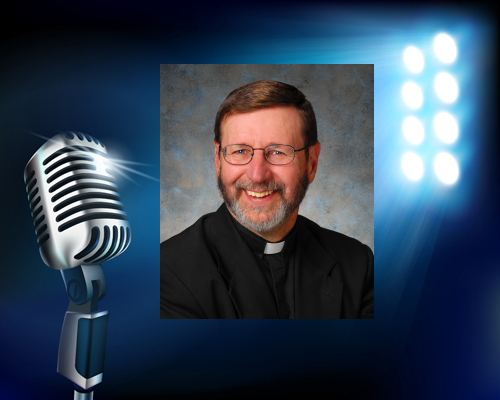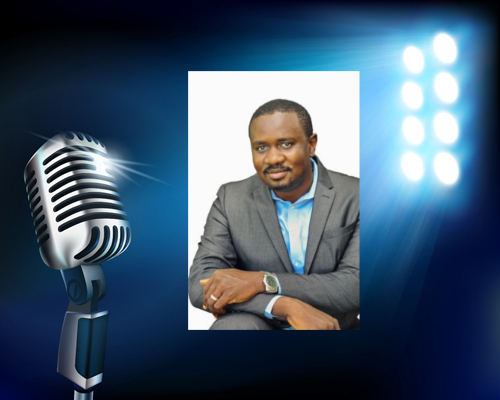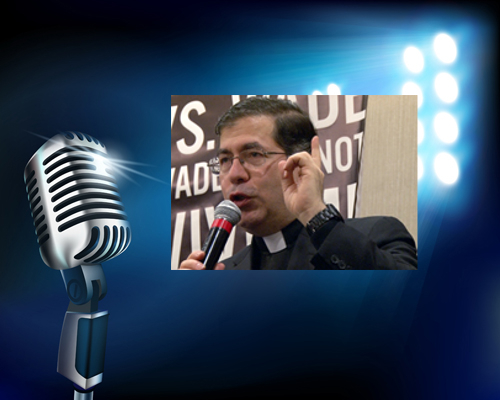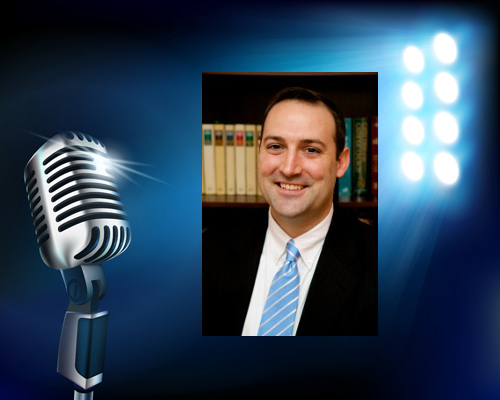 You likely know my guest this week here at The Catholic Book Blogger for his numerous shows on EWTN and as being host of EWTN Live. Father Mitch Pacwa has recently released a new book titled Praying the Gospels with Father Mitch Pacwa: Jesus Launches His Ministry. You can find my review of that book here. I had an opportunity to conduct an interview with Father Mitch about this book, Ignatian spirituality and future book plans. Here is what he had to say:
You likely know my guest this week here at The Catholic Book Blogger for his numerous shows on EWTN and as being host of EWTN Live. Father Mitch Pacwa has recently released a new book titled Praying the Gospels with Father Mitch Pacwa: Jesus Launches His Ministry. You can find my review of that book here. I had an opportunity to conduct an interview with Father Mitch about this book, Ignatian spirituality and future book plans. Here is what he had to say:
PETE: Your most recent books focus on bible study. Why is the study of Scripture so important to the faith life of Catholics?
FATHER MITCH PACWA: Moses said to Israel, “Man does not live by bread alone but by every word that comes from the mouth of God.” Jesus Christ our Lord endorsed this teaching right to Satan’s face. Later in the Old Testament the Prophet Amos said: “Behold, the days are coming,” says the Lord GOD, “when I will send a famine on the land; not a famine of bread, nor a thirst for water, but of hearing the words of the LORD.” (Amo 8:11 RSV) Such passages about the Word of God as food led Vatican II to consider the pulpit the “table” of God’s Word, just as the altar was the “table” of the Bread of Life, Jesus Christ.
The meaning of life is not available to us from modern entertainment, the news or many other sources. God’s Word gives us the meaning of being human, our origin from God the Creator and our destiny in eternal life in heaven. The Word tells us we can be redeemed from sin and teaches us how to live in a redeemed way. Such wisdom is absent from the modern world, and it is no wonder that our families languish, morals decrease, and purposefulness gives way to aimlessness.
PETE: As a priest of the Jesuit order you obviously take some influence from St. Ignatius. How does Ignatian thought influence your approach to Scripture and in turn how you teach Scripture through your books?
FATHER MITCH PACWA: Certainly, Ignatian spirituality forms the very way I approach Scripture and the rest of life. In the case of Scripture, the first step is to accept from St. Ignatius’ Rules for Discernment of Spirits that we must think with the Church. We consult the Magisterium in order to understand the meaning of Sacred Scripture within the context of the rule of Faith; we do not approach the text in a vacuum and create our own interpretations.
Secondly, St. Ignatius teaches us to imaginatively apply our senses to the scenes in the Gospel and place ourselves within the events of our salvation. In this way we allow the Holy Spirit to convict our minds and souls about the ways in which we do not think like Jesus Christ or love like him. That approach to the Gospels lies behind this book and the next books I plan to write in this series of reflections.
PETE: I really enjoyed this study and took a lot of notes. In this interview medium we couldn’t possibly cover all my questions but I would like to focus on one. In Meditation 2, Jesus’ Journey to the Jordan you touch upon the hidden life of Jesus’ youth. It seems people have a desire to fill that void with stories, as you mention, such as how Jesus developed his “powers”. In a sense they foist a teenage Clark Kent becoming Superman mentality on those years. Why do you think people can be so intent upon discovering this period of Jesus’ life when perhaps He never wanted it revealed to begin with?
FATHER MITCH PACWA: I am convinced that people want to find themselves in their depiction of Jesus’ youth. They want him to be like they are, or they want him to use methods of spiritual empowerment they can emulate. By positing that Jesus went to Tibet to learn Buddhism, or to India to learn yoga, or to Egypt to learn the secrets of the Egyptian priests, then modern people can do the same and do exactly what Jesus did by using humanly accessible spiritual or occult techniques. This also means that Jesus is merely human, like these theorists, and therefore much more manageable a character than would his fully divine nature in the hypostatic union with his fully human nature might allow them.
PETE: Can you tell us about any future writing projects you have in the works?
FATHER MITCH PACWA: I have a lot of writing and production projects in the works. I plan to finish volume 2 of this series, which will treat the miracles of Jesus during his Galilean ministry. I am also just finishing another Bible Study for Catholics for Our Sunday Visitor, which will be on the Holy Spirit; the volume on Mercy just came out for the upcoming Year of Mercy. Then I will finish a manuscript on comparing our present cultural situation to the deterioration and collapse of Roman Empire and the barbarian invasions of the late 4th through the early 7th centuries. I also have written a detailed outline of four Bible Studies on the Psalms for the Catholic Scripture Study series. The Psalms studies will be organized around the themes of St. Ignatius’ Spiritual Exercises.
PETE: Time for my signature ending question. This is a blog about books. What books are currently on your bookshelf to read?
FATHER MITCH PACWA: I am presently enjoying the pre-publication copy of Fr. Frank Pavone’s new book, Abolishing Abortion, the absolutely wonderful book by Drs. Scott Hahn and Ben Wiker, Politicizing the Bible, and the very interesting philosophical demonstration of the existence of God, Who Designed the Designer? by Michael Augros.
God bless you,
Fr. Mitch Pacwa, SJ
____________________________________________________________________________________________________
Other Books by this author:
Winning the Battle Against Sin: Hope-Filled Lessons from the Bible
Mercy: A Bible Study Guide for Catholics
How to Listen When God Is Speaking: A Guide for Modern-Day Catholics











